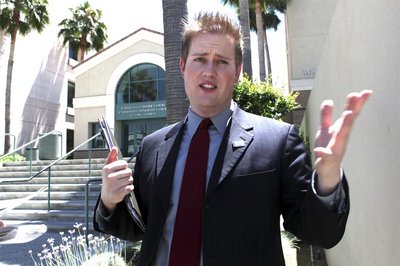A federal judge in California heard closing arguments last week in a challenge brought by an LGBT group seeking to overturn the military’s ban on openly gay servicemembers.
An attorney for the Log Cabin Republicans, a Republican LGBT organization, requested in his closing statement that U.S. District Judge Virginia A. Phillips issue an injunction that would halt dismissals under “Don’t Ask, Don’t Tell.”
The agency filed the suit in 2004, charging that the policy violates gay individuals’ constitutional rights to free speech, due process and open association, marking the first time that a suit was brought challenging the constitutionality of the law.
LCR lead attorney Dan Woods referenced the 2003 U.S. Supreme Court ruling that found anti-sodomy laws to be unconstitutional, arguing that “‘Don’t Ask, Don’t Tell’ infringes on that right, punishing individuals who engage in a constitutionally protected activity.”
“Log Cabin Republicans have brought this case to trial to call out the government on the wrong it’s doing on current and future homosexuals who wish to serve their country,” Woods told the judge. “We ask you to do them right.”
Throughout the two-week trial, Woods presented reports and analyses proffering that “Don’t Ask, Don’t Tell” has done little to protect unit cohesion, one of the stated goals of the 1993 law. He also introduced a series of statements by military and government leaders, including President Obama, who all urged repeal of the law.
Woods presented such witnesses as Servicemembers United executive director Alex Nicholson, a former Army linguist who was discharged nine years ago after being outed by a colleague, and Joseph Rocha, a former petty officer third class who faced years of physical and mental abuse because of suspicions of his sexual orientation, and who later came out to escape the harassment. Author Nathaniel Frank, a Philadelphia native and senior research fellow at University of California think tank The Palm Center, who has written extensively on “Don’t Ask, Don’t Tell,” also testified.
U.S. Attorney Paul Freeborne defended the policy on behalf of the Justice Department and argued that Congress “exhaustively considered” the same matters that arose during the plaintiffs’ witness testimony, and that the future of “Don’t Ask, Don’t Tell” should rest with Congress and not the courts.
Freeborne also contended that LCR did not have the proper standing to file the case, as they had no direct interest in the military policy.
The defense did not present any witnesses but rather only detailed the legislative history of the law.
Phillips did not give a timeline for when she would reach her decision, but some analysts expect her to wait until Congress moves on a bill that could repeal the law.
In May, the U.S. House of Representatives approved a defense-spending bill to which the repeal measure, introduced by Pennsylvania Congressman Patrick Murphy (D-8th Dist.), was attached. The Senate has yet to vote on the bill, but is expected to consider it in September.
Jen Colletta can be reached at [email protected].

